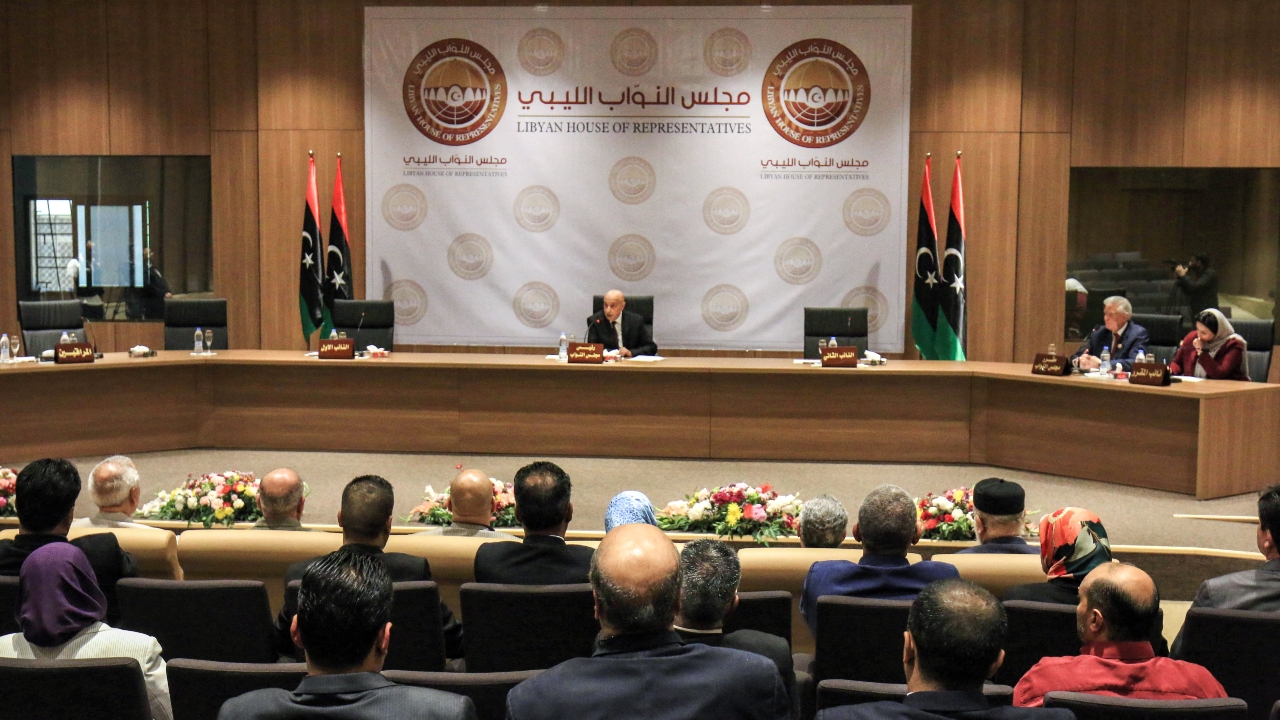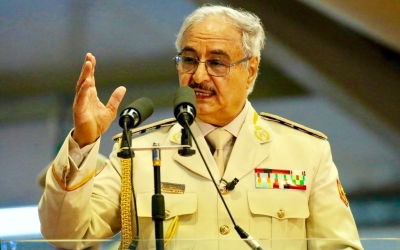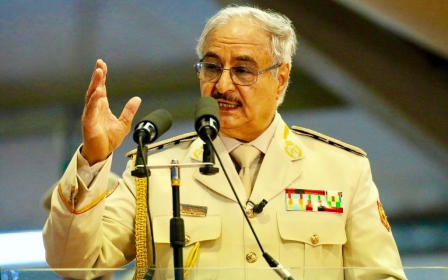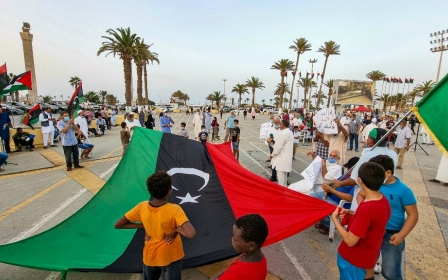Libya legislative vote rescheduled for January, says eastern-based parliament

Libya's legislative elections have been postponed until January, the country's eastern-based parliament said on Tuesday, instead of being held in December as planned.
"The election for members of the House of Representatives will take place 30 days after the presidential vote," still scheduled for 24 December, parliamentary spokesman Abdullah Bliheg told a news conference.
Elections are supposed to help unify the country after years of conflict and division, but disputes over their legal and constitutional basis have laid bare the extent of the split between the country's east and west.
The House of Representatives, based in the eastern city of Tobruk, has been in disagreement over electoral laws with a rival body, the equivalent of Libya's senate, in the capital Tripoli.
Bliheg said holding the presidential poll was the priority, leading to the move to delay the legislative ballot.
"In recent years the country has not been able to stabilise itself through the parliamentary system," he said. "It was necessary to organise the presidential elections as soon as possible."
'Violations'
Libya has endured a decade of conflict since the 2011 fall of longtime ruler Muammar Gaddafi in a Nato-backed uprising, which unleashed a complex civil war that dragged in multiple foreign powers.
A landmark ceasefire between eastern and western camps last year, following a year-long unsuccessful campaign by eastern commander Khalifa Haftar to seize the capital Tripoli, paved the way for a United Nations-backed peace process and sparked hope for stability.
The Tripoli-based unity government of interim Prime Minister Abdulhamid Dbeibah took office in March with a mandate to lead the country to the December ballots.
But negotiations over electoral laws have placed growing doubts over the process.
On Tuesday, the western-based chamber said it had rejected a law that eastern-based MPs adopted a day earlier on the legislative elections which had been scheduled for December, AFP reported.
The Tripoli-based chamber "rejects ongoing violations by the parliament... the latest being the promulgation of what it called the 'electoral law of the parliament'," said Mohammed Nasser, spokesman for the body formally known as the High Council of State.
On Twitter he wrote that a deal signed in 2015 requires parliament "to come to an agreement with the High Council of State on this law".
Legislators would be held responsible for "any delay or disruption to the date of the elections due to unilateral actions," he added.
The council was yet to respond to the announcement of the legislative vote postponement.
International pressure
The House of Representatives said on its website on Monday that "by passing the laws necessary for the upcoming elections" it had "ended one of the most dangerous phases in Libya's modern history".
The law came less than a month after Aguila Saleh Issa, speaker of that body, signed off on legislation for the December presidential election.
Opponents said the move bypassed due process and favoured a run by his ally, Haftar.
The High Council of State has also rejected the text covering the presidential poll.
In September, the parliament passed a no-confidence vote in Dbeibah's unity government, which the High Council of State also rejected.
Dozens of countries, including Germany and the United States, had urged Libya to ensure the December polls went ahead on time.
Middle East Eye propose une couverture et une analyse indépendantes et incomparables du Moyen-Orient, de l’Afrique du Nord et d’autres régions du monde. Pour en savoir plus sur la reprise de ce contenu et les frais qui s’appliquent, veuillez remplir ce formulaire [en anglais]. Pour en savoir plus sur MEE, cliquez ici [en anglais].






